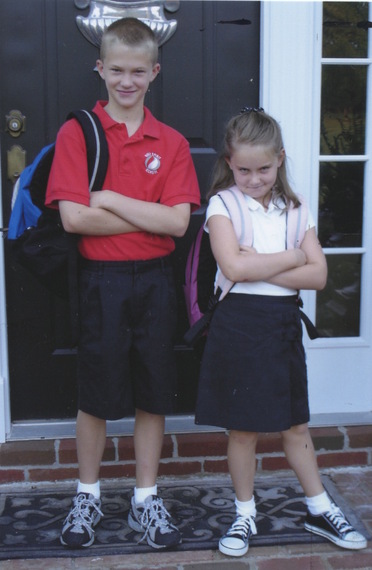If you have a strong-willed child, you know it. You don't have to be told by a professional. Strong-willed children are disagreeable, stubborn, and emotional. High-maintenance kids wear parents out emotionally, physically, and mentally. The good news: strong-willed children also tend to be of above average intelligence and many times they are intellectually gifted. Nevertheless, all children are born uncivilized. From birth, high-maintenance kids often want to be treated like adults. Civilizing a baby, toddler, child, tween, and teen who thinks they are an adult is not easy.
When safety is not a concern, natural consequences work best. When a person thinks they know everything, failing and fixing the problem on their own changes behavior faster than telling what to do. If your child is sure she can pour a glass of water out of a pitcher that you know is too full, a little spilled water won't hurt anything. Next time, she will ask for help because you didn't tell her "no" the first time. Strong-willed kids take "no" as a challenge to prove they are right.
Model respect. The "wait until your father gets home" days are over. "My way or the highway," is also not effective. The "do as I say and not as I do" mentality of parenting is dead. As soon as parents were told not to spank children, and paddles were removed from schools, fear-based parenting was over. Strong-willed kids are especially sensitive to wanting to feel like they are respected.
As parents, we often feel as though we deserve respect because of everything we've done for our kids. The idea that kids must earn respect from their parents, but parents can demand respect from their kids, is a parenting trap. Love is unconditional, respect is reciprocated, not earned. Earning comes after working. Respect needs to be modeled not worked for. Just like any other behavior, kids learn best when it is modeled by their parents. Kids learn respect by being respected by their parents and watching their parents model respect for others.
Don't talk too much. Young children will use long lectures opportunistically. The longer the parent talks and lectures, the longer consequences are delayed. Lecturing a strong- willed teen will only drive them away. At a time when many kids can't stand the air their parents breath, strong-willed teenagers need to be listened to more than talked at. A strong- willed kid will often tell you more information on their own than if asked questions. Use their intelligence to your advantage by letting them tell you what they know.
Don't take a strong-willed child's behavior personally. Even a 10-year-old who thinks they are an adult will act like a 2-year-old if they don't get their way or are told, "no." Melt downs in strong-willed kids are common. Melt downs do not mean parents have failed, they mean parents are doing a good job setting limits. Strong-willed kids are stubborn and don't like to be told what to do. Kids need to be told what to do on a daily basis. Continue setting limits. Usually, a strong-willed kid simply wants to be heard. It helps to say, "I heard that you want to go outside, but that isn't possible right now." Then, ask them to propose another time that would be acceptable to go outside and agree, if reasonable. High-maintenance kids are constantly seeking adult-like control and independence.
When a kid who always thinks he knows the best way to do something is successful, notice. Telling him you had never thought of doing it that way, but it worked and great job, will increase the chances of future independence and success. Noticing the positive also increases self-esteem and models respect. Admitting a child was right can be tough for some parents. We were often strong willed-children ourselves.
